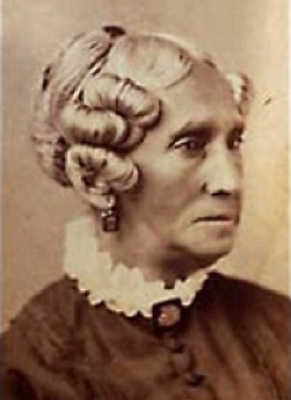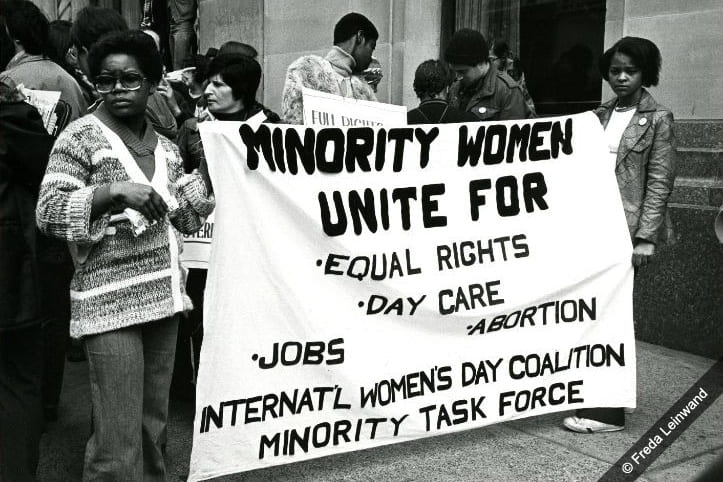March 8th was International Women’s Day. When I woke up that morning and started scrolling through Instagram, I saw all my friends and family recognizing the burdens that women face and celebrating their strength and existence. Then, I saw a post about Meghan Markle, a Black woman who is also the Duchess of Sussex, and the very racist comments that have surfaced after her interview with Oprah. A week later, on March 13, was the one-year anniversary of Breonna Taylor’s murder. Breonna Taylor’s family still hasn’t received justice for her murder. The sexist and racist language surrounding Taylor’s death was despicable. Last week in a mass shooting, six Asian American women were killed directly related to the anti-Asian rhetoric that’s been happening since the emergence of COVID-19 and the racism that’s been normalized towards Asian communities. The irony of the situation seemed inescapable in light of the celebratory month. Women are supposed to be uplifting other women, especially Black women. Malcolm X said that, “The most unprotected person in America is the Black Woman. The most neglected person in America is the Black woman,” and the past year has shown us that. Just like it’s shown us that it’s all women of color whose needs will be ignored and whose bodies will be violated. As a fellow woman of color and a feminist, I know I exist at the intersection of multiple systems of oppression: white supremacy and patriarchy. I believe that we can’t be feminist, unless we are also antiracist.

Feminist Theory
Mainstream feminist theory has been criticized for centering the needs of white women and largely ignoring the needs of women of color, or assuming that their needs are the same. This has led to White women speaking on behalf of all women, as if it’s a situation of one size fits all. It’s not. Similar to how the reproductive justice movement became based on the needs of middle-class white women, the idea of “sisterhood” within the feminist movement also catered to similar populations. Due to this, it’s not surprising that even though we have, Black, Indigenous, Mexican, and Asian feminists, their platforms and voices are often ignored and suppressed in preference to white women. Even when gender and race oppression are acknowledged and discussed, information pertaining to gender oppression is only highlighted from the perspective of white women. Racial oppression and systems of resistance are most often told from the perspective of men of color, further negating the very specific experiences of women of color.
Black women and women of color are not only told that they belong to lesser genders, but that they are of lesser races. The experiences of white women who have experienced oppression is unlike the experiences of women of color. There is no parallel, because the intersectionality of their identities compound on each other to equate a sum that is greater than oppression from any individual source. These experiences of discrimination are attributed to race, gender, class, or all three. Not only are women of color experiencing this unique combination, but they are also aware that they are being marginalized from multiple avenues; avenues that don’t oppress white women or other men of color.

The anti-racism movement has been far more socio-politically active than the feminist movement. Black women were key figures during the abolitionist movement, fighting for womanhood denied to them as enslaved persons. While Black men were in the media spotlight, it was Black women who were running the show from behind the scenes of the civil rights era from raising funds, community and grassroots organizing, and mobilizing followers. As such they were key activists for antiracism, allowing them to secure their roles in the gender inequality movement. But the work of these Black women in the civil rights movement has been ignored and forgotten, in leu of men who often held sexist beliefs on gender norms and equality.
Feminism as an Antiracist Movement
Feminism needs to be an antiracist movement, because there is a need for a political movement that highlights the intersection of race and gender oppression. Yes, white women have been mistreated. Yes, they have faced oppression, but it’s important to recognize that for women of color, this discrimination and mistreatment is doubled and quadrupled. If we can free Black women, dismantle the patriarchy, and white supremacy, all women will be free. Only when we address white supremacy and systems of violence that benefit the white man, can we truly start to change the other related systems of power and oppression.
How can you help?
- Continue to raise awareness and fight for Breonna Taylor.
- Listen to the experiences of Black women and women of color around you. Come from a place of empathy. White women need to decenter and rid of themselves of the white savior complex. Their activism needs to happen because it’s the right thing to do.
- Address the need for intersectionality when talking about race and feminism.

